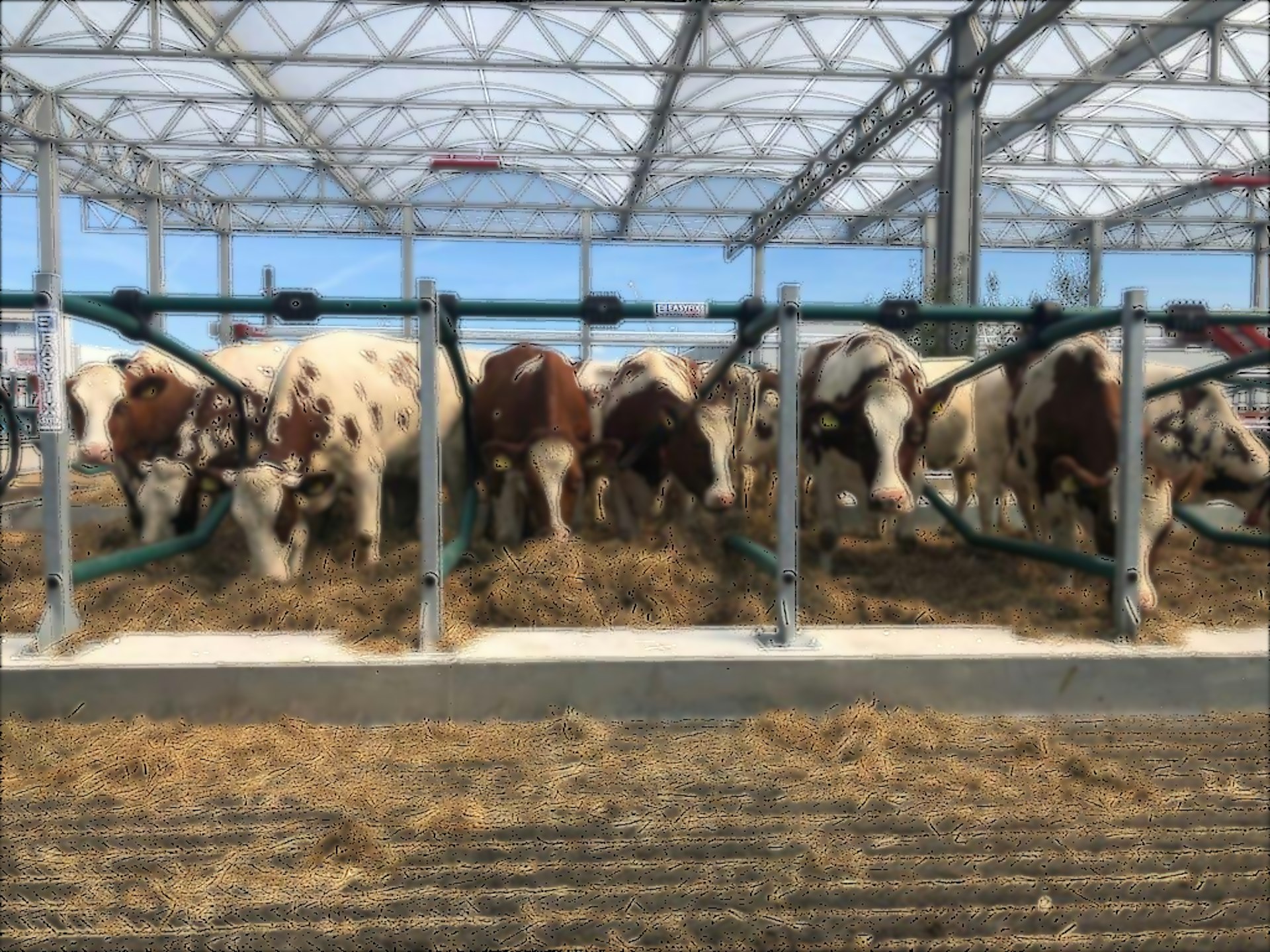
Cows have arrived at the world’s first floating farm!
05/14/19Today, 32 cows have taken up residence in the world’s first floating farm in Rotterdam. The ‘girls’ now have a fantastic barn at their disposal with spacious stalls, a milk robot, a slurry robot, an automatic belt feeder and a comfortable rubber floor. If the cows feel like taking a walk in the neighbouring field, they have that option too.
Bringing urban dwellers as close as possible to the origin and preparation of their daily food. Transparent, educational, recreational and healthy.
The farm has been transparently design, so that visitors can see what goes on at Floating Farm. The milk is processed into healthy dairy products, the manure is separated and in future will be re-used as an organic and rich nutrient for the city’s plants, gardens and parks. The milk, slurry and feeder robot are also on show.
Floating Farm contributes to the circular city, recycling and upcycling of biomass from Rotterdam into valuable dairy products for the residents of Rotterdam.
Wherever possible, Floating Farm is self-sufficient and circular. Floating solar panels thus provide for all the energy needs, rainwater is captured on the roof and then purified. Most of the cattle feed comes from the city. The menu for the cows consists of brewers’ grains, bran, potato scrapings and grass from playing fields and golf courses in the city. The cows process these ‘waste products’ into healthy dairy for local residents. Upgrading waste products like grass into edible nutrients (proteins) is generally considered a very efficient condition for sustainable food production. The dairy products are for sale at Floating Farm and soon in Lidl stores in and around Rotterdam. Zegro is responsible for the wholesale operation. Of course, there is also space ‘on board’ for education and presentations.
‘Transfarmation’
From the top floor of Floating Farm, the cows have a view of what is still a busy port but which will have been transformed into a residential/working area in 10 or 15 years’ time. This part of the Merwehaven in Rotterdam is in transition. The initiators of Floating Farm call the current area transformation a ‘Transfarmation’. This refers to the change which needs to take place in sustainable and healthy cities (transition) and that producing healthy food (farming) must be a permanent feature of and in the city.
The background to the development of Floating Farm lies in the increasing scarcity of farmland on the one hand and the growing world population on the other. This results in a search for ‘Future Food Systems’ – new ways to be able to continue feeding the global population in the future. Climate issues are another reason. Rotterdam is situated in a very water-sensitive delta. Like so many cities, Rotterdam has to cope with water discharge from the rivers, rising sea levels and heavier rainfall. This can all be managed in various ways, one of which is floating buildings. By building a floating farm, food production can continue during flooding.
Even before the opening, this innovative project was attracting a great deal of interest. The search for a sustainable food system in a climate-changing world is high on the agenda in many cities. All this has been made possible by private investors and consortiums of partners in technological supplies, innovation and research.
Plans are now on the table for a floating chicken farm and a floating greenhouse where vegetables and herbs can be produced, all aimed at producing fresh food in a transparent way close to the consumer.
By shortening the transport of food production to consumers, the Floating Farm makes an important contribution to reducing food loss and of course transport-related pollution.
After an adjustment period for the cows, visitors are very welcome. For more information: www.floatingfarm.nl.

More information
For additional information and high resolution image material, please contact:




